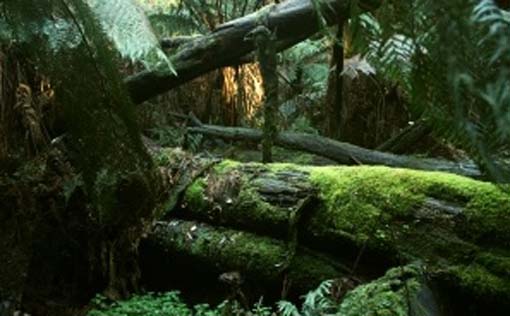The World Wildlife Fund (WWF) will organize a public seminar featuring the state of Kedah’s Ulu Muda Forest on 12th June, 2012.
Titled “The Importance of the Ulu Muda Forest for Water Security in Northern Peninsular Malaysia”, the seminar will be held at the Penang Skills Development Centre (PSDC) in Bandar Bayan Baru, Penang from 8am to 1 pm.
The seminar aims to gather key decision makers from the public and private sectors along with representatives from the community to ensure the successful implementation of strategies to help sustain the Ulu Muda Forest.
Ulu Muda has been a pet project for conservationists over the last few years when it was discovered that the forest is under the danger of an increase in commercial logging. Ulu Muda has yet to be gazetted as a national park which could prevent such industrial activities within its 160,000ha area.
The Ulu Muda forest is a habitat to a rich diversity of bird species, mammals and plants, and also provides continuous supply of water to northern Peninsular Malaysia for industrial, agricultural and even domestic use. WWF estimates that the water supply benefits the livelihood of about 48,000 families.
The Malaysian Nature Society has identified that Ulu Muda has large gatherings of plain-pouched hornbills, making it a hotspot for nature lovers and wildlife photo enthusiasts.
The plain-pouched hornbills (Rhyticeros subruficollis) was not known to exist in Malaysia until the early 1990s. Its conservation status is certified to be under the “Vulnerable-Threatened” queue as per the IUCN Red List of Threatened Species.
IUCN or the International Union for Conservation of Nature, is considered to be the world’s main authority of species’ conversation status and is headquartered in the UK.
Aside from hornbills, 50 species of bats have also been sighted at the forest. The pollination of fruit trees by these bats assist to preserve the food chain and improve the vegetation conditions in the reserve.
WWF fears that without proper control, logging in Ulu Muda will lead to more incidences of floods and be a bane to livelihood in the surrounding paddy fields, a main source of income for Kedahans. This will also bring about the decimation of natural habitat and migration spots of various forms of flora and fauna, and in turn ruin any potential for eco-tourism and conservation.
The seminar on 12th June envisions to turn the situation around with its public forum. Some of the topics that will receive attention here include the “Challenges in Ensuring Water Security (Upstream/Downstream”, “Payment of Ecosystem Services (PES)”, and “CSR opportunities”, among others.
Representatives from Muda Agricultural Development Authority (MADA), Perbadanan Bekalan Air Pulau Pinang (PBAPP), Green Spider and CSR Asia will be presenting their talks to provide a fair view of the current environmental situation in Ulu Muda.
Benoit Laplante, reknowned member of Economy and Environment Program for Southeast Asia (EEPSEA) was also invited to talk about the implementation of trust funds in conservation movements.
A panel discussion will also be held to discuss the future of Ulu Muda.
Admission is free of charge, though donations are welcome to support WWF’s work to establish Ulu Muda as a protected area.
To find out more about the geographical details of Ulu Muda and it’s lush offering of animals and plants, download the WWF’s “Ulu Muda: The Hidden Realm of the Malaysian Rainforest” booklet.
Picture taken from: www.sxc.hu











